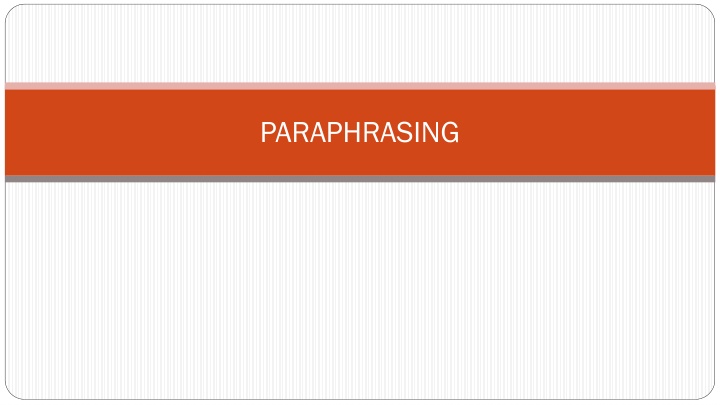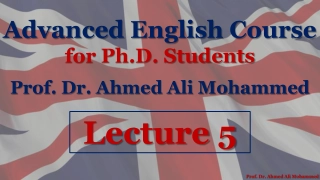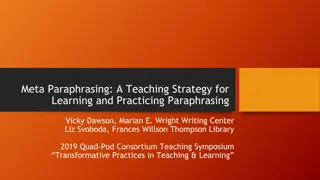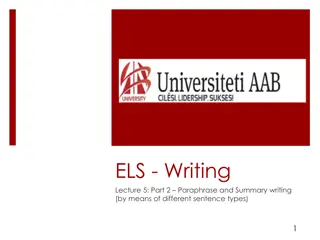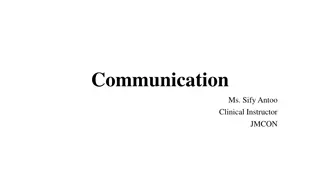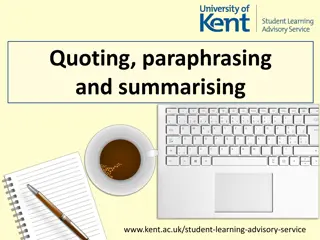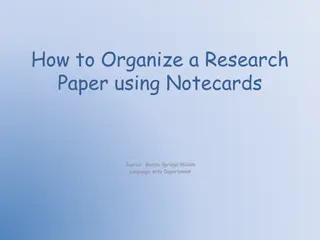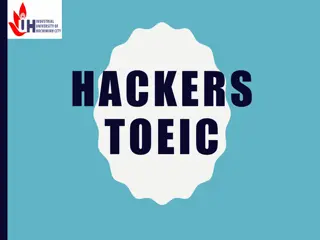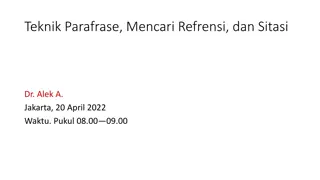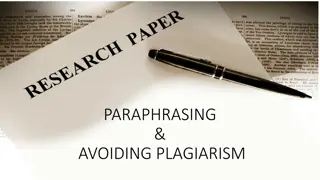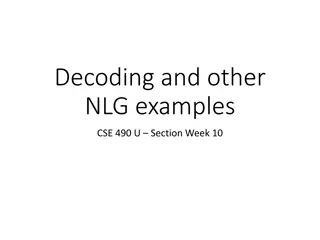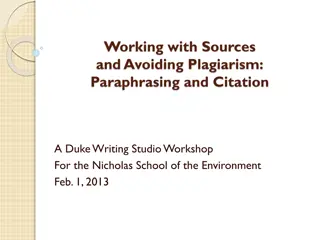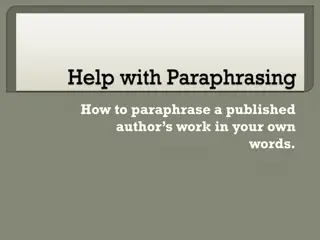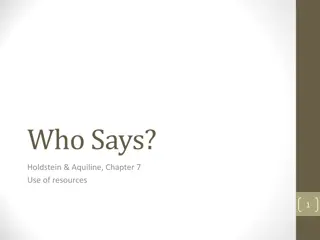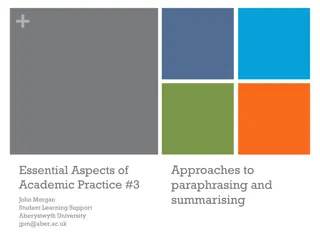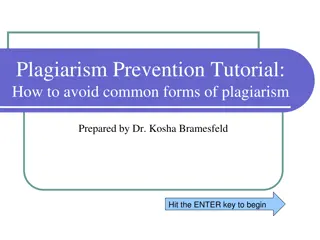PARAPHRASING
Paraphrasing involves using your own words to convey someone else's writing while maintaining an academic style. It is essential to identify key points and provide proper references to avoid plagiarism. Rewriting techniques such as changing vocabulary, verb forms, and word classes can enhance the quality of paraphrased content. Additionally, synthesis may require combining multiple viewpoints or information sources to create a comprehensive overview. Explore examples and tips for mastering paraphrasing and synthesis effectively.
Download Presentation

Please find below an Image/Link to download the presentation.
The content on the website is provided AS IS for your information and personal use only. It may not be sold, licensed, or shared on other websites without obtaining consent from the author.If you encounter any issues during the download, it is possible that the publisher has removed the file from their server.
You are allowed to download the files provided on this website for personal or commercial use, subject to the condition that they are used lawfully. All files are the property of their respective owners.
The content on the website is provided AS IS for your information and personal use only. It may not be sold, licensed, or shared on other websites without obtaining consent from the author.
E N D
Presentation Transcript
Paraphrasing is using your own words to report someone elses writing, but maintaining an academic style. Like in summarizing, paraphrasing involves looking for topic sentences and keywords in the original text (the main information/ points). References must always be given to the sources of the texts you are making use of; otherwise you may be accused of plagiarism (using someone else s ideas or words as if they were your own).
Rewriting a text for the purpose of including it in your own writing can be done in several ways: By changing the vocabulary e.g. She examined the difficulties that = She investigated the problems that Rewrite the following: Smith and Jones (1991) found that the circumstances had
By changing the verb form (e.g. from active to passive: this can change the focus or emphasis) e.g. Johns (1987) analyzed the students difficulties and = The students difficulties were analyzed by Johns (1987) Rewrite the following Brown and White (1994) observed the problems caused by seminars
By changing the word class (e.g. from verb to noun phrase) e.g. The reports were completed in April = The completion of the reports in April ensured that the students had time to revise before their examination. Suggest a different continuation after: The completion of the reports in April Rewrite the following and add an appropriate comment of your own: James and Harris (1984) concluded that there was a need for note-taking practice.
By synthesis You may need to combine two or more viewpoints or pieces of information from other writers in your paraphrase and summary. Often one reference will support another, but there may be opposing views as well.
Example of a synthesis Example of a synthesis Johns and Dudley-Evans (1980) touched on the problems created by the lecturers use of colloquial words and phrases This use of informal language was also noted by Jackson and Bilton (1994) who investigated geology lectures given in English
Two direct quotations are given below relating to the same topic (note taking). Paraphrase and combine them in a brief report (not using direct quotations). Terseness of note taking rather than mere quantity seems to be an essential ingredient of effective note taking. (Dunkel, 1988) several other researchers have found similar positive relationships between terseness of notes and test performance (Chaudron, Loschky and Cook, 1994)
